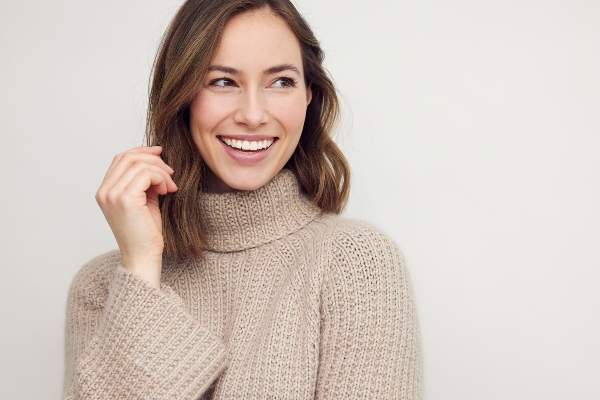5 Facts About Dental Crowns You Need to Know

dental crowns are a popular solution to a plethora of oral health issues. From cosmetic concerns to reconstruction, dental crowns offer a simple and virtually painless way for you to get back to living your life with confidence.
Important facts about dental crowns
Below are five facts about dental crowns that everyone should know.
1. Dental crowns are comfortable
A crown is a “cap” shaped like a tooth, which is then placed over the tooth that has been altered to accommodate the crown. Once in place, the crown will help restore the tooth’s shape and size, so it will not feel abnormal. The crown will also help strengthen the tooth and improve its appearance.
2. Children can benefit from crowns
Crowns are often used to help keep a child’s primary baby teeth healthy. Because most kids love sugary foods, but not so much oral hygiene routines, they are often the victims of cavities. If their cavities go untreated, it could severely damage their baby teeth, causing them to decay well before they are due to fall out.
When this happens, crowns are used to either save a tooth that cannot support a filling or protect teeth from tooth decay. They can also help limit the use of general anesthesia for a child due to age, behavior or medical history. Some children cannot handle invasive procedures, which is why dental crowns make a great option.
3. There are many types of crowns
With the advancement of medical care, today’s dental society has made improvements in materials used to create dental crowns.
Stainless steel is mainly used for children’s crowns and temporary crowns in adults. It is a cost-effective material that does not require multiple visits to make sure it is the proper fit. The only drawback for this option is the fact that it is visible. These would be best used on out-of-sight molars.
Other common materials include: "porcelain fused to metal," "all resin," "all ceramic" and "all porcelain." These types of crowns are used more for cosmetic reasons than functionality. A patient might also opt for one of these types because of a metal allergy.
4. Onlays and three-quarter crowns provide coverage options
While traditional crowns will cover the whole tooth, this type of crown will act as a partial crown, which also means partial coverage.
5. Crowns can last many years
Typically, dental crowns can last five to 15 years, depending on the amount of “abuse” they are exposed to, which can include not brushing or flossing regularly, playing sports without a mouth guard, eating hard or sticky foods, biting on ice, biting on pencils and other non-edible objects, and so on. With a great oral hygiene routine, one can extend the life of dental crowns to the fullest capacity.
Conclusion
While nothing in life is perfect, dental crowns are pretty darn close. If you have further questions about this procedure and what it all entails, contact us today.
Are you considering dental crowns in the Philadelphia area? Get more information at https://frankforddentalcare.com.
Check out what others are saying about our dental services on Yelp: Dental Crowns and Dental Bridges.
Recent Posts
A cosmetic dentist can use a dental crown to improve your dental health. A tooth with severe decay or discoloration can be depressing. The infection could reach the pulp at any time. Placing a custom-fit dental crown can protect your tooth from further damage and injury. If you want to know more about the steps…
Dental crowns come in a range of material options, including zirconium and porcelain. These materials vastly increase the aesthetics and reliability of dental crowns as compared to past alternatives. Regardless of the material, most dental crowns look and work well. However, there are some significant variations between these options to be aware of. This article…
Dental crowns are dental restorations that cover teeth entirely for added protection, improved function, and cosmetic purposes. Dental crowns are versatile treatment solutions, and there are many reasons that a dentist may recommend this treatment for patients.The most common reasons that dentists recommend a dental crown are to protect a tooth that is weakened or…
Dental crowns are often costly and require that a dentist remove a significant amount of the tooth's structure to place them. Read on to learn about dental crown alternatives. Other treatment alternatives are sometimes available that are either less expensive or significantly less invasive. Dental crowns are frequently used to restore severely damaged teeth.The following…


